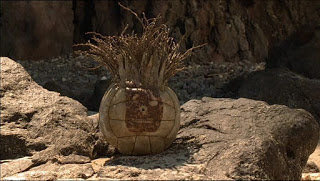MAN LIVES HIS DEATH
Man Lives In Relationships
Human life occurs in relationships. According to
James Houston, "God created us as relational beings. We were created for
others, destined to love, to receive love and share love." "We were
created for others." The human being needs the other to perceive himself
in the world. Jesus said the second greatest commandment is to "love your
neighbor as yourself" (Matthew 22:39). There is a reason for this: we are,
in a way, connected to each other and we need each other to be ourselves.
The Cast Away film, starring Tom Hanks, illustrates
this truth. Hanks plays the role of a man who survives a plane crash, which
crashes into the sea, and ends up stopping on a desert island. To stay lucid
and conscious, he draws the traces of a human face in a volleyball ball and
establishes a relationship with it, as if it were a person. When he loses it on
the high seas, in an attempt to save himself, he cries copiously as if he had
lost a friend.
People need each other to identify themselves and
define themselves as beings in the world. The mother feels mother in the person
of the child; the teacher, in the student; the doctor, in the patient. Human
beings define themselves in relationships. Therefore, when man walked away from
his Creator, he lost the perception of his identity as the son of God. Now he
sees himself and God in a new perspective because he no longer lives the life
of Eden. He lives only his death, the end of his original self.
The Death of the Original Self
After Adam's unprecedented decision, set up what
God had warned him: his death. New attitudes are incorporated into the life of
the first man. He became afraid of God and walked away from him. Now he's
ashamed of himself, he feels guilty, but puts the blame on the other (Genesis
3.8-12). That Adam died.
The prodigal son, likewise, died when deciding for
an autonomous life, breaking relationships with his father. That distinguished
and important young man, who enjoyed son status, became another being. He is
not only far from home, but also from you, spending your possessions until you
become a miserable, who wishes to feed on the food of the pigs you care
for.
The parable of "prodigal son" and Genesis
3 show that the breakdown of relationships generates death. The youngest son
and Adam broke relationships that defined them as originals beings. Such
relationships linked them to their origins and kept them alive, as conceived.
Now they're disconnected from those who gave them their lives. Now, they just
have to live death, for the creature, by his efforts, cannot reconnect with the
one who created it. Such impossibility derives from the change that occurred in
its personal nature. The new being is incompetent to return to the previous
condition.
When relationships are over, there is almost
nothing left to live, for the human being was created for communion with the
other. Once broken, death comes, since life happens in interpersonal
relationships. Happiness arises when people enjoy living with others in
fraternal, loving and friendly relationships. After the Fall, however, new
types of relationships appeared, such as envy, jealousy, competition that
contribute little to the life of communion.
Therefore, it is observed that, when, in
relationships, one attacks and offends the other, and this attitude is
consolidated into a new posture of life, then the death of the relationship
occurs. Both, in a way, die for each other and for themselves, since man needs
the other to define himself as a person. For this reason, adam's act in Eden
cast him far from God and himself.
(This text is an extract from my book The Man in
Search of Himself - Reflections on the Human Condition in the Parable of the
Prodigal Son).
Antônio Maia - M. Div.
Copyright



Comments
Post a Comment